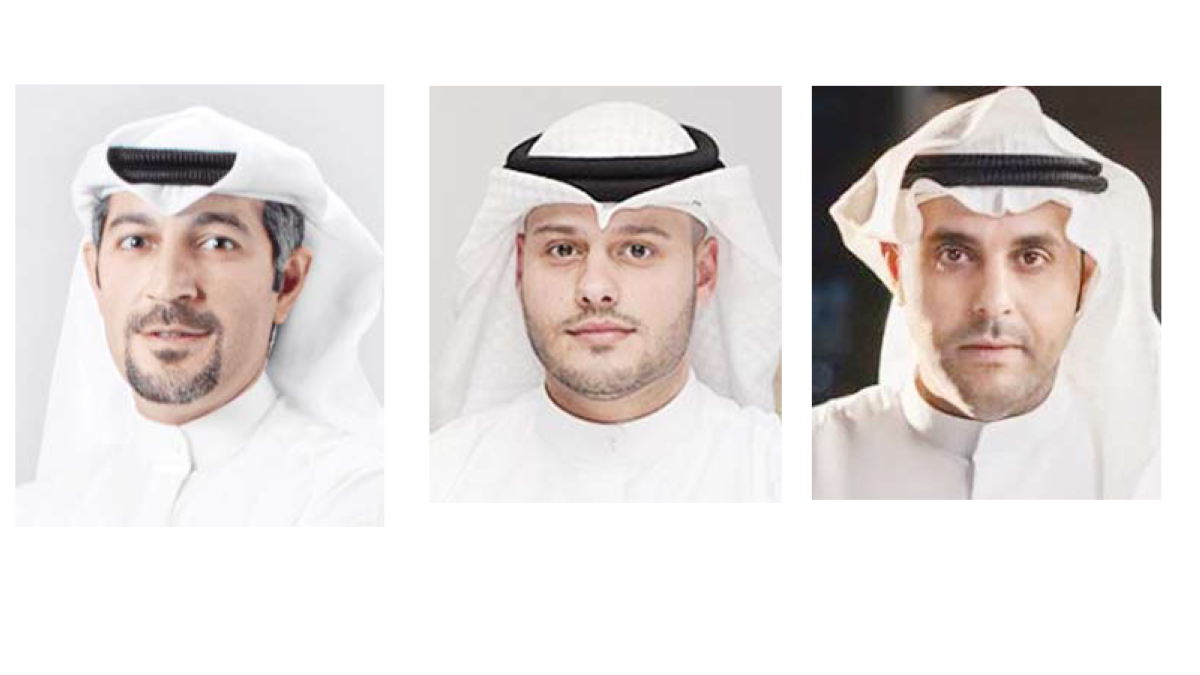16/10/2024
16/10/2024

(From Left) Al-Loughani, Al-Enezi, Al-Ibrahim
KUWAIT CITY, Oct 16: Many Kuwaiti youths have become less dependent on government jobs and turned their passions and dreams from a mere idea to a success story, launching from Kuwait and then expanding regionally and internationally. Kuwait News Agency (KUNA) interviewed ambitious young entrepreneurs in Kuwait who built local businesses, then expanded globally, establishing their brand in the Arab and Gulf regions, and occasionally in European countries. Co-founder and CEO of Floward Abdulaziz Al-Loughani told KUNA that his company operates in 40 cities across the Gulf and the Middle East, pointing out that his company consists of 1,000 employees.
Founded in 2017, the biggest hurdle the company faces is possessing the right technical skills in line with the company’s growth, as well as gaining customer trust with the idea of ordering flowers online, he added. The company did not only emulate global business models of viewing products online, rather it innovated a special way of providing customers with available goods coinciding with local demand. To enhance user experience, the business has innovated with artificial intelligence, using it to add high-quality descriptions to products, as well as provide the user with curated arrangements that suit the customer’s taste, he stated.
Floward has made numerous achievements since it was founded, like joining the Saudi Unicorns program, acquiring the company Mubkhar, and acquiring an official flower business license from FIFA World Cup Qatar 2022 to become the first business in the championship’s history to get this advantage. Plans for the business include expanding investment in existing branches and opening new ones, finding new acquisition opportunities in different fields similar to the gifting business. In a similar statement, Co-founder of COFE app Ali Al-Ebrahim said that his business’s story began in 2018, profiting off an increase in global coffee production, and then expanding into the beverage industry completely.
The business idea entailed mixing coffee production with advanced technology, rooted in Middle Eastern history, by launching the COFE app, offering coffee enthusiasts a great way to enjoy coffee, added Al-Ebrahim. The app aims at simplifying ways of acquiring coffee and ultimately beverages, which is valued at USD 1.5 trillion, adding that the app was downloaded more than 4.1 million times in Kuwait, Saudi Arabia, UAE, Egypt, and Qatar, he pointed out. The company’s biggest hurdles since its inception were finding strategic partnerships, and finding the appropriate workforce to build a team dedicated to the company’s success, requesting local universities offer appropriate workshops for this endeavor.
Expanding outward posed new hurdles, one of which was aligning the company’s work with the regulations of each country, assuring his hope for similar regulations to be unified across the region. The latest investments in the company have totaled USD 15 million, raising the company’s value to USD 100 million. The company consists of more than 50 employees, covering marketing, technology, and sales while owning offices across the Gulf and Middle East. Future goals of the company include reinforcing its position in the technology and beverages sectors and improving the supply chain between businesses, like hospitality and airlines. For his part, Co-founder and CEO of the Justclean app, Athbi Al-Enezi, said that with the spread of online food ordering services, came the idea of cleaning to ease cleaning chores and laundry. Launched in 2017, the app offers its services across the Gulf Cooperation Council (GCC) with local teams working in each country. He pointed out that the company raised USD 30 million in funding in the latest funding round.
The company’s biggest hurdles came during the Coronavirus pandemic, disrupting supply chains and services, he added. The app records thousands of orders each day in every country it is located in, reflecting the significant trust placed upon it by its customers, he exclaimed. Justclean is valued at USD 70 million, and employs more than 80 staff working in local teams in each country, assuring the company’s willingness to grow and enter different markets. (KUNA)


